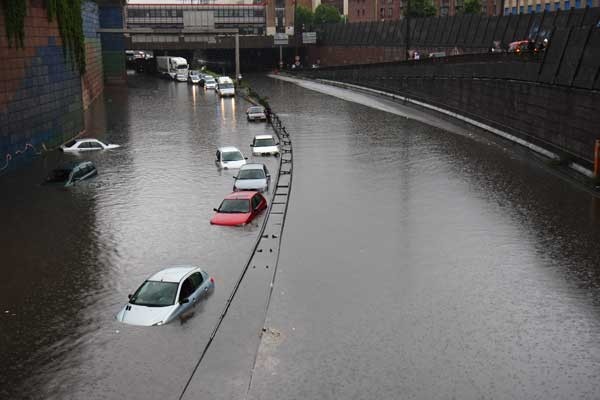Blog
Whiskey Connoisseurs: Protect and Insure Your Valuable Collection
Investing in a passion increases your enjoyment, especially if one of your passions is fine spirits, such as whiskey. The memories of where you had your first dram of exceptional whiskey or were introduced to a rare bottle by a friend and associations stimulate your senses and bring back a time of good company, sharing something different, or a whiskey new to you. Proper investment and protecting these memories requires risk mitigation and insurance.

Beyond a liquid souvenir of days past, whiskey represents a significant market. Collectors have grown exponentially over the past few years, driving whiskey, scotch, and bourbon into the limelight. Whiskey collecting is not only fun, but profitable today. Here you will learn about the nature of today’s whiskey market as well as ways that you can mitigate the risk to your collection and insure it in case of damage or loss.
Today’s Whiskey Market
One of the best venues to find rare whiskey is Sotheby’s auctions. Consider in 2015 they reported zero percent of their sales in rare whiskey. In 2019, their sales of rare whiskey skyrocketed to 13%.
While wine has always been the spirit collectors’ pinnacle, whiskey is gaining. Over the last several years, wine investment grew by 127%, while during the same period, whiskey investment increased a stunning 586%. Collectors range anywhere from millennials in their late 20s to older, more experienced investors. These investments represent a significant market that’s gaining notice.
Tips for Investing in Rare Whiskey
Do you enjoy a single malt once in a while? Perhaps you’re looking to purchase investment-grade bottles of whiskey. Regardless of your level of investment interest, start your collection with the following tips in mind.
Buy to your taste first.
What happens if you purchase a whiskey that doesn’t appreciate like you expected? It’s not a loss if it’s a spirit you enjoy drinking. You can still enjoy your bottle of whiskey, and if you store it properly, you have years to decide whether to drink or keep it safe.
Buy your favorites.
Do you have a favorite distillery that produces excellent spirits? You might find a production locale that speaks to you. Consider purchasing whiskey that reminds you of a point in history. While more than simple souvenirs, buying your favorites is a common investment strategy for any collector. Your collection will be more valuable to you as well.
Buy scarce bottles if you can.
Scarcity makes almost anything more valuable. If you stumbled across a 1926 Macallan Fine & Rare Whiskey, expect to pay in the millions as there were only forty bottles produced. Truly rare whiskey commands high price tags, so plan your acquisitions accordingly. For those that fetch higher prices, you need to focus more attention on their storage. Properly storing your whiskey collection in a climate controlled room ensures you maintain or increase your collection’s value.
Store your whiskey collection properly.
One of the most important elements to a valuable whiskey collection is storing it properly. Whiskey requires a climate-controlled facility as well as adequate space to store your bottles upright. Unlike wine, your whiskey must be stored upright to protect against the cork degrading or transferring unfavorable flavors into your whiskey. If possible, store your whiskey in its original carton or case, avoiding strong sunlight and erratic temperature fluctuations. How you store your whiskey affects its flavor, its longevity, and its resale price. Avoid ripping or scuffing labels and more which can adversely affect your whiskey’s value.
Insure your assets.
As with all your valuable assets, insurance may protect you against loss and degradation of your investment for a variety of reasons.
You likely keep your whiskey collection in your home. While homeowner’s policies cover certain types of damage or loss of your primary residence, it’s not designed to cover most collections. You need an insurance policy that covers your whiskey collection, regardless of where in the world it resides, and whether it’s at your residence or in transit there.
Why Insure Your Whiskey Collection?
As with any valuable asset, insurance provides you with a level of comfort knowing that your collection or individual pieces are covered in the event of damages that occur outside your control.
Imagine accidental breakage, a pipe bursting and flooding your spirits cellar, or your temperature system suffering a catastrophic failure. A failure in any of your systems could result in a partial or total loss of your collection.
That doesn’t include loss due to fire, theft, or even breakage while in transit to your home. There are myriad ways you can better protect your collection with the right insurance.
Case Studies: Liquor-Collection Claims
Here are a few claims investors filed to protect their assets. Each claimant was covered under their valuables policy, which was outside their homeowner’s contract.
Flooded Storage Cellar
A common claim occurs when a water pipe bursts in a home and floods an investor’s liquor storage cellar. For example, a collector returns home to find several inches of water on the floor in a wine and/or spirits cellar. Even though the insured created an optimal environment for stored liquor, they still faced a substantial cleanup.
It could have been worse. They could have returned to a foot or more of water with liquor bottles floating and waterlogged labels peeled from bottles. Instead, they pumped out the water, mopped and dried the floor, and chalked the experience up to lessons learned.
But it didn’t end there. The insured noticed mold growing around the expensive racks in the cellar. While they cleaned the racks with bleach, they still smelled mildew. They couldn’t see it, but the flooded water squeezed its way into the walls behind the racks and caused the drywall to mildew.
To combat this situation, the insured had the spirits racks torn out, and stored the bottles in a climate-controlled storage facility. Because the bottles faced a significant fluctuation in humidity, some of the corks cracked and were ruined.
A specialized valuables policy protected the insured’s collection. Most damages were covered.
Failure of Climate Control System
Liquor collections like rare whiskey need a climate-controlled environment. This requires a cooling or heating system to keep bottles at a uniform temperature for optimal longevity.
In one case, an insured investor discovered their cooling unit broke down and blew hot air into their cellar storage. However, it was after an excessive period of time exposed to air that damaged many bottles in their cellar. The contents of the cellar were impacted. But it was also covered under the collector’s valuables policy. The result was the client was made financially whole, even though suffering the loss of a few sentimental bottles.
Key Takeaways for Protecting Your Spirits Collection
Insuring your whiskey or spirits collection isn’t difficult. Coverage extends beyond your typical homeowners’ policy to include the following:
- Damage due to accidental breakage, flooding, fire, theft, climate control breakdown, and damage incurred during transit.
- Label damage due to the above.
- Coverage for new bottles that lose market value appreciation at an agreed-upon value.
- And more.
For more insight into what’s covered, how to best appraise your collection, how to get started covering your whiskey or fine liquor collections, how best to store your collection, and so much more, download this Fact Sheet.
At the end of the day, working with a trusted insurance advocate assures your private collection is protected and safe from many occurrences of loss and degradation that investors like you may face. For more insight on how to protect what’s important to you, reach out to us for expert guidance on risk mitigation and insuring your precious valuables.
Table of Contents







